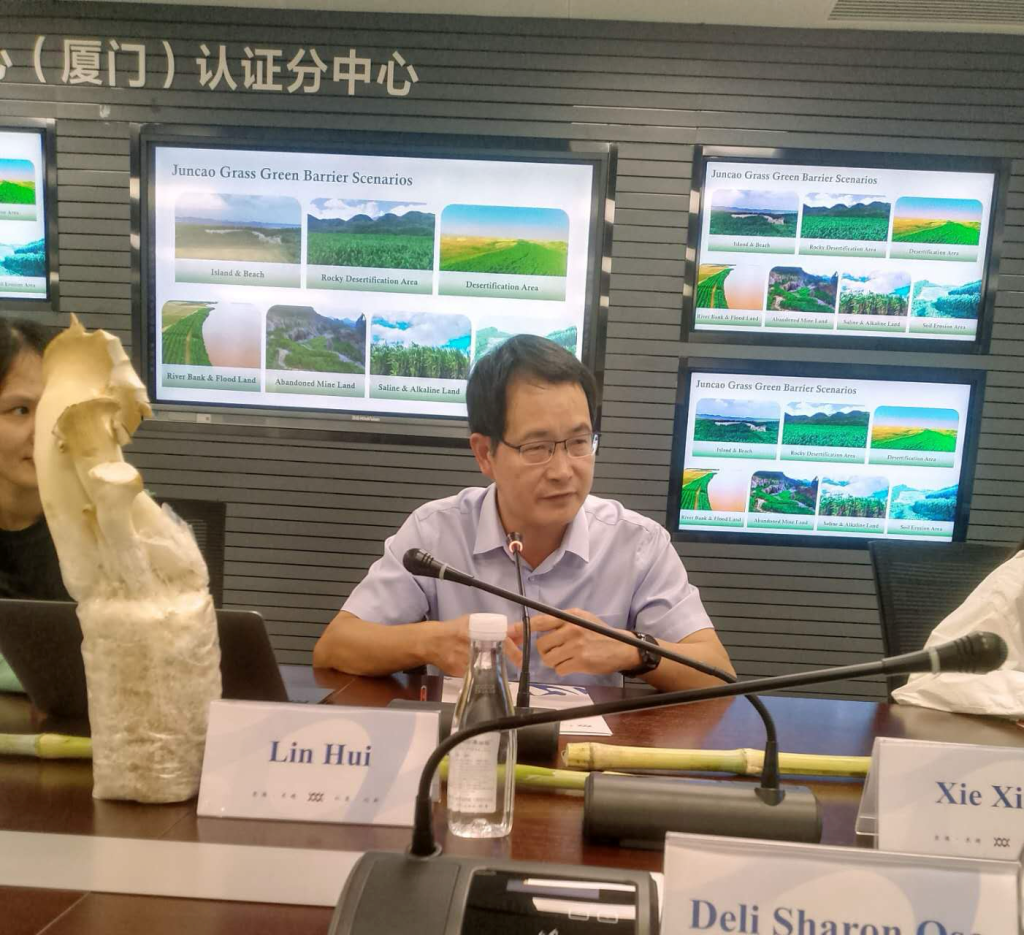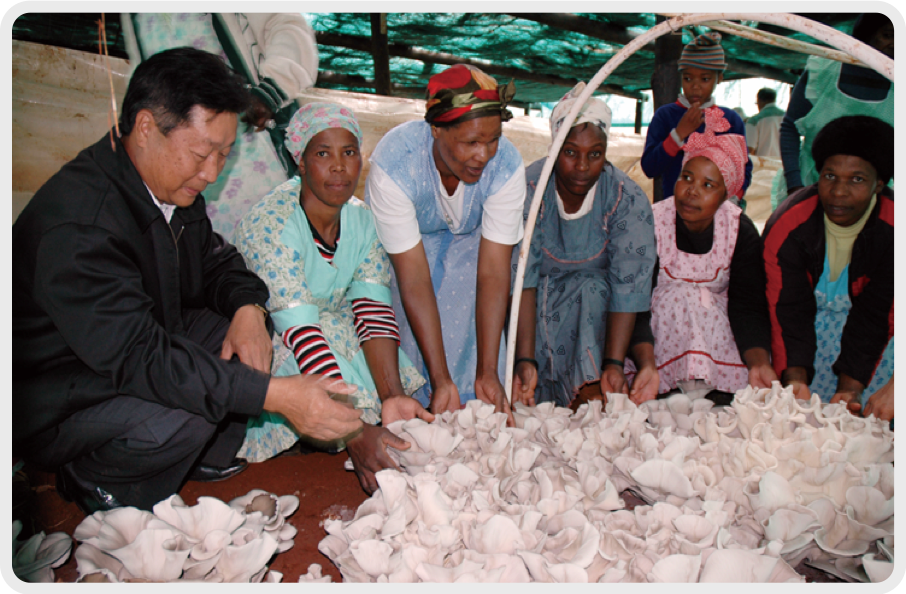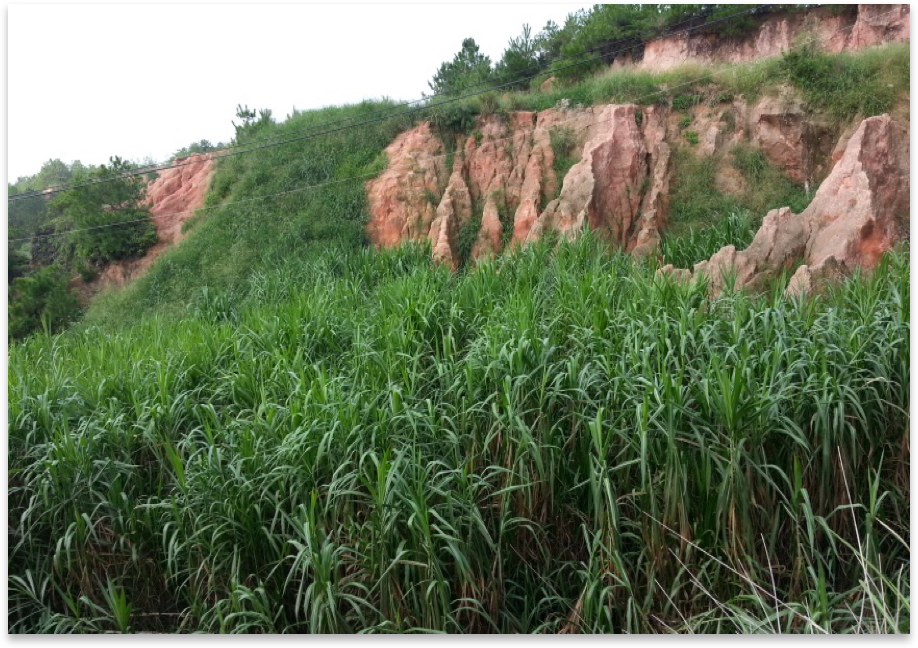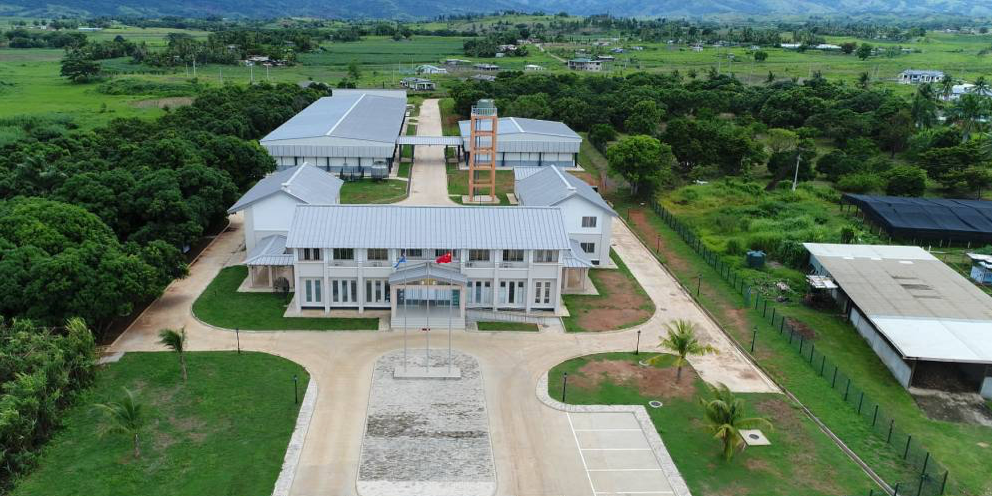JUNCAO Technology development around the world, especially in small island countries, is crucial to enhancing food security and provides a solution to meeting the United Nations (UN) Sustainable Development Goals, Deputy Director of China’s National Juncao Research Center Lin Hui said.
The National Engineering Research Center of Juncao established in 2011 by China’s Ministry of Science and Technology is fully equipped with Juncao engineering technology research and product development capabilities, and now enjoys extensive cooperations with many domestic and international research institutes and enterprises.
Juncao technology is China’s self-developed technology using grass as a versatile solution for the cultivation of edible mushrooms, nutritious livestock feed, and also as an ecological barrier to combat desertification.
It has played a crucial role in China’s successful elimination of absolute poverty. Juncao technology effectively replaces timber for mushroom growing and has significantly lowered farming costs, reduced annual tree clearing, and provided an economical and environmentally-friendly path towards poverty alleviation.
Mr Lin underscored the importance of Juncao Technology in ensuring food security and meeting the UN SDGs to Pacific Islands journalists in Xiamen City, Fujian Province, on Friday 30 May at the margins of the third China-Pacific Island Countries’ Foreign Ministers’ Meeting.
“Development of Juncao industry around the world, especially in small island countries is crucial to enhancing food security, and provides an effective and comprehensive solution that plays a positive role in the implementation of the United Nations Sustainable Development Goals.
“Juncao technology provides a sustainable development solution for small island countries. It also enhances ecological security, reduces forest logging, enhances energy security and therefore provides a sustainable development solution for Small Island Countries.”
“The promotion and application of Juncao technology is aimed at helping developing countries further enhance their independent development capabilities,” he emphasized.

The Juncao Technology development advantages highlighted by Mr Lin include the following:
- Utilization of Marginal Land: Juncao grass can be planted on non-arable land, improving local supply capacity, reducing the import of mushrooms and forage.
- Strong Resistance to Extreme Weather: Compared with silage corn and other crops, Juncao grass will survive better in extreme weather, including drought, flood, cold, strong wind, hail and so forth. It also blocks the wind, protecting plants, farmland, roads and buildings.
- One Time Investment for Long-Term Benefit: Once planted in tropical and sub-tropical areas, harvests can continue for more than 20 years, meaning limited investment but high profits.
- Short Production Cycle and High-Quality Products: Juncao grass can be utilised after three months of planting, requires no pesticides and has a high crude protein content, producing high quality feed and mushrooms.
- User-Friendly Techniques: The simplified technology enables a wider participation of small-holder farmers in production
- Juncao grass planting sites are a beautiful scenery and a source of tourist attraction.
- Grass Fireboard: Juncao varieties can replace wood in the production of high-performance artificial board. Fast growing eucalyptus takes 5 to 6 years to be ready for harvest, while Juncao can be harvested and used in the year planted. Juncao’s substitution for timber will reduce forest logging and replace valuable forest carbon sink resources.
- Development of Juncao industry enhances energy security by ensuring high carbon sequestration and multi-functional biomass energy. Electricity generated from one hectare of Juncao grass equals to 60 tons raw coals. Juncao biomass power generation is carbon neutral and there is a sustainable and renewable energy source, enhancing eco-systems and biodiversity, and moreover, it improves air quality and health.

Meanwhile, as a scientific research and policy-consulting center, the National Engineering Research Center of Juncao continues conducting researches into Juncao science and technology for the development of Juncao industry not only in China but around the world.
The center consists of several functional departments, including Administrative Office, Research and Development Department, International Cooperation Department, Training and Education Department and Extension and Service Department.
As the cradle of Juncao technology, the National Engineering Research Center of Juncao takes the lead in Juncao research, which has won dozens of provincial and national awards on Juncao science and technology, and owns over 60 Juncao-related intervention patents and published 18 books.
The center’s Chief Scientist, Professor Lin Zhanxi was the first to replace wood in the cultivation of edible and medicinal mushrooms, solving the conflicts between mushroom cultivation and forest consumption.
The center has screened out 48 species of herbaceous plants to cultivate 56 medicinal and edible mushrooms with 358 Juncao medium formulations, and developed respective cultivation techniques.

Now the Juncao research field has expanded from Juncao grass breeding and Juncao mushroom cultivation to Juncao grass utilization in ecological management, feed, fungi feed, fertilizer, biomass energy and materials.
The National Engineering Research Center of Juncao devotes to poverty-reduction and ecological management by providing technical assistance both at home and abroad.
It has long undertaken Juncao assistance projects with Fujian Province to help 586 counties in 31 provinces of China, including Ningxia, Xinjiang and Xizang, and also national foreign aid and international cooperation projects.
The National Engineering Research Center of Juncao has established technology research and training centers or demonstration bases in 17 countries, including Papua New Guinea (PNG), Fiji, South Africa and Rwanda, and cooperated with government departments, universities and research institutions in about 40 countries.
About 310 international training courses on Juncao technology were hosted for 13,589 experts, scholars, government officials and farmers from 106 countries. This technology has been listed by the UN as a key promotion project of the China-United Nations Peace and Development Fund for global promotion.
Juncao knowledge is spreading around the world in 18 languages, including Chinese, English, Japanese, French, Korean, Russian, Spanish and so forth.
By DELI-SHARON OSO
In Beijing, China









